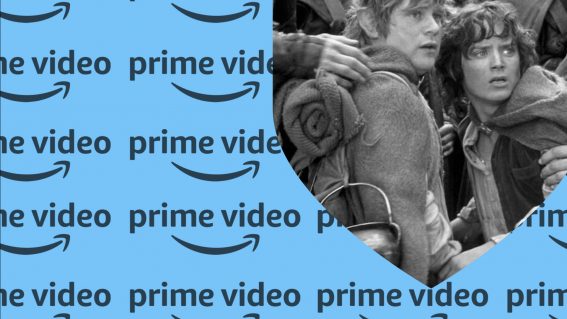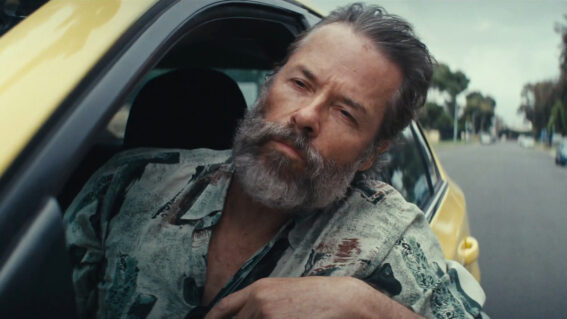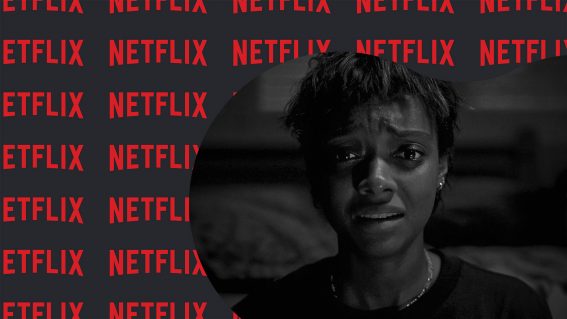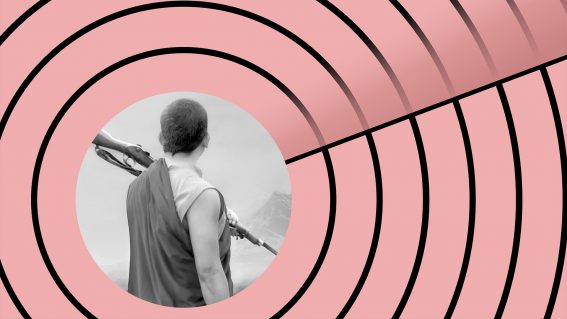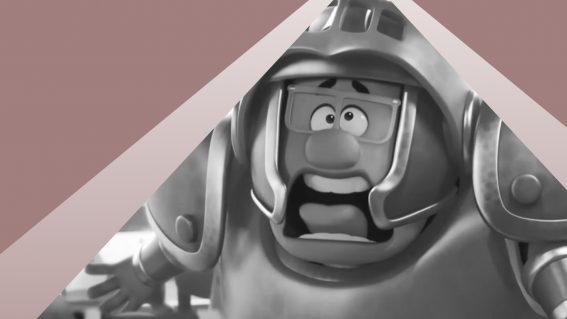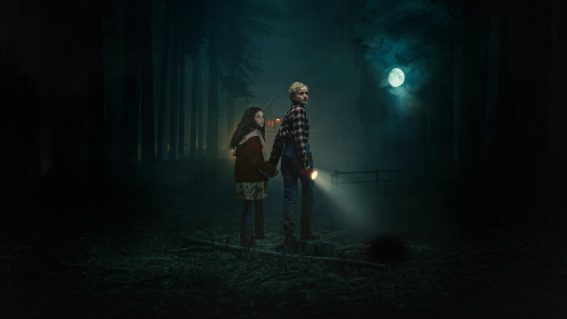Why I love – and hate – the narrator of Love at First Sight
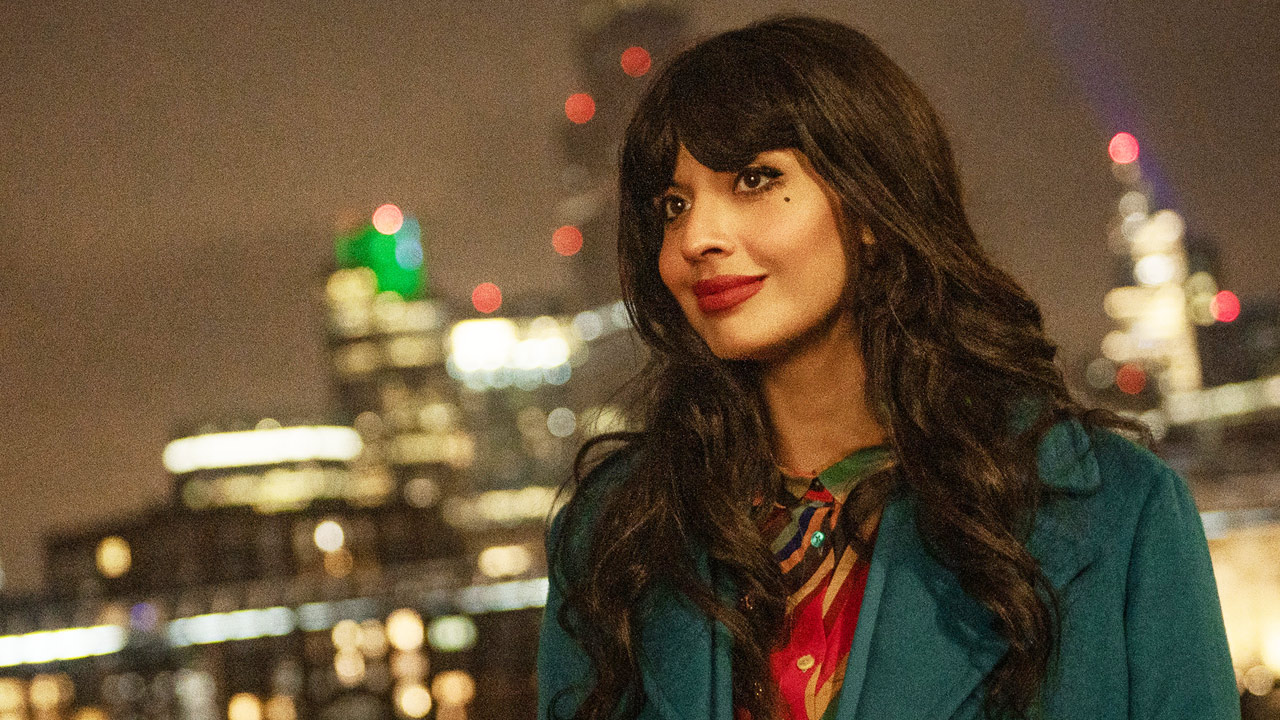
Netflix’s hit romantic movie Love at First Sight is corny and conventional, but has one unexpected element: an oppressively chatty narrator played by Jameela Jamil. She drew a rather mixed response from Luke Buckmaster.
What if there really was a god, and this god talked the leg off a chair, commentating your life to some far-flung audience in the cosmos? What if they laced their narration about you, and your future lover, with juicy facts only a god would know—like how many times you’ll have sex, how many times you’ll argue, when you’ll die? What if they enjoyed crunching numbers, nerdishly inserting data such as the percentage of times you run late, and your average phone battery life? What if they weren’t content with merely watching your story, and inserted themselves into your life’s peripheries, like a side character in a video game?
This isn’t a hypothetical. It’s a description of the narrator of Netflix’s popular romantic comedy Love at First Sight: a shapeshifting, fourth wall-breaking yarn-spinner played radiantly by Jameela Jamil (best-known for The Good Place). This sweet-toothed film, struck and crippled by Cupid’s arrow, bloated by cheese and sugar, doesn’t outwardly state that she’s a god. But there’s no way she can’t be: she knows everything, takes the form of whoever she pleases, and manipulates time at her leisure.
I love her because she appreciates the narrative minutiae of people’s lives, drawing tales from their triumphs and tragedies like water from an oasis. I hate her because she won’t stop with those damned statistics and loves schmaltz—moulding the world in the shape of a Hallmark Christmas special, making us nostalgic for the fire-and-brimstone god of old, with his locusts and plagues and slaughtering of first sons.
Directed by Vanessa Caswill and adapted from a young adult novel by Jennifer E. Smith, which is where all those bleeding stats come from, the meet-cute uniting Hadley (Haley Lu Richardson) and Oliver (Ben Hardy) takes place at John F. Kennedy International Airport on December 20. The narrator begins by describing this as “the worst day for the year” to travel before bombarding us with numbers.
“Over 193,000 passengers arrive and depart that day,” she says, “causing on average 23 minute delays at check-in” and “a peak wait time of 117 minutes at security.” She briefly pauses to introduce Hadley—who misses her plane—then resumes. On that plane “there are 367 souls” as well as “412 pieces of luggage, 344 personal items, four emotional support animals and 63 neck pillows.” It’s a good thing she counted those neck pillows. We could’ve spent the whole film wondering.
The narrator appears as a commuter at the airport to introduce a “story about fate…or statistics,” before walloping us with more. This continues intermittently for the entire runtime. After Hadley and Oliver meet, go to dinner and board a plane, the narrator reappears as a flight attendant. A second chance encounter reunites the characters (who wouldn’t have met if Hadley hadn’t run late). Oliver’s seat belt is broken, so the narrator moves him to a business class seat next to Hadley. But this meddlesome deity isn’t fooling anyone: it’s pretty obvious she broke that belt herself, or at least conspired to make it happen.
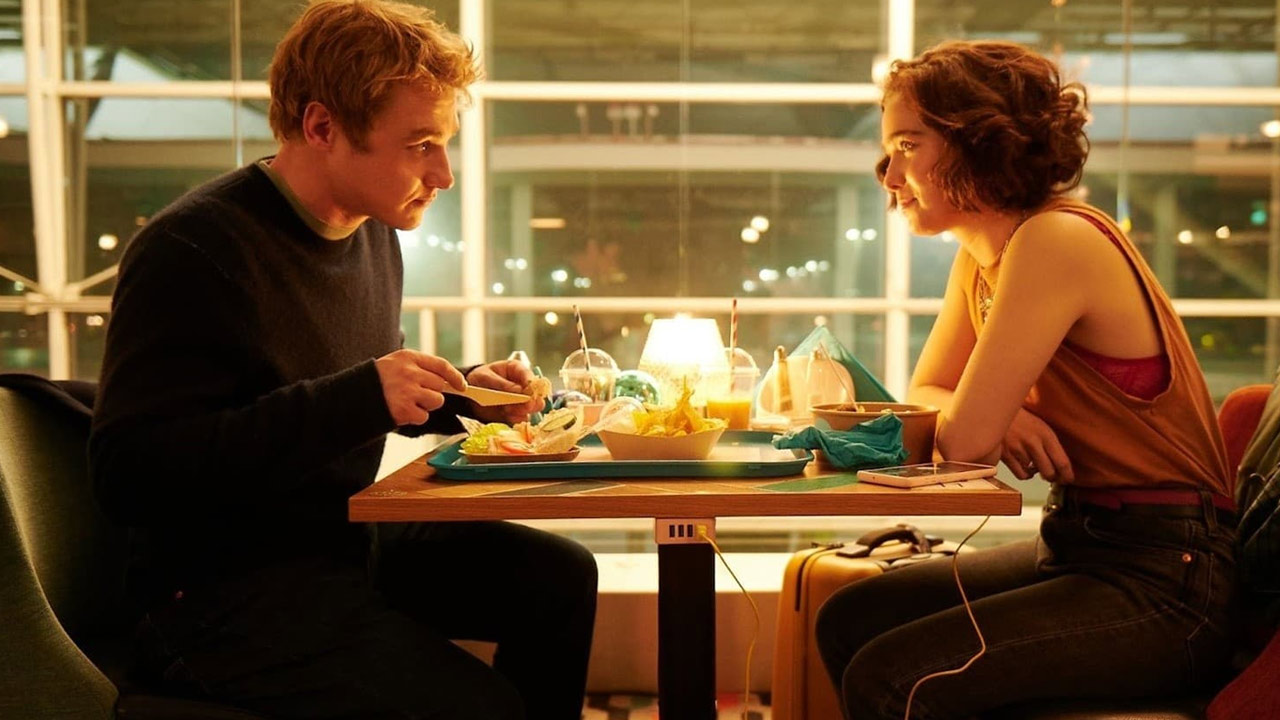
Odd behaviour for a flight attendant, but nothing compared to what happens next. With all passengers strapped in, the narrator opens an onboard luggage compartment, pushes a bag to a side, then directly addresses her audience—the camera now positioned inside the compartment. “Over the next six hours and 47 minutes, Hadley Sullivan and Oliver Jones will fall in love,” she says. The narrator then moves to the next seat and, looking inside again, the camera squished between bags, continues (“but then they’ll be separated in a crowd…”).
Consider, for a moment, how this would look to the passengers. Imagine you were one of them and you saw a flight attendant apparently addressing tiny people located inside the overhead baggage containers. I’d treat this as seriously as a Final Destination premonition and get my butt off that plane toot suite, yelling for everybody to save themselves, save themselves. Exiting the plane would also allow me to be as far away from Oliver as possible when, attempting to be charming, he tells Hadley that his favourite number is “i”, because “it’s the imaginary unit, the square root of negative one.” Groan.
Off the plane, Oliver gives Hadley his number but she doesn’t get it: her phone broke, because plot twist. But at this point my mind was elsewhere. Wouldn’t it be funny, I thought, if that beaming sticky-beaked narrator kept appearing to Oliver and Hadley in different circumstances, reincarnating herself as bit players in the production of their lives? My wish was granted. She appears at border control, inspecting Hadley’s passport; she appears as a bus driver, wearing a watch that can wind back time; she appears as a bartender provisioning champagne. I love her chameleon-like behaviour, her subterfuge, her audacity. I hate her smugness, her addiction to numbers, her dropping of pseudo-profound lines that don’t make sense (such as “fate can only be fate if we decide we want it to be”).
This woman is too much, too often, too numerical. But it crossed my mind that she might also be the only reason to keep watching a film so catastrophically slushy and corny. Eighty-three percent of the time, I was torn. Ten percent of the time, I extracted guilty enjoyment from the film’s excessively positive vibes. Seven percent of the time, I wanted to douse the sets in kerosene and set them on fire.



